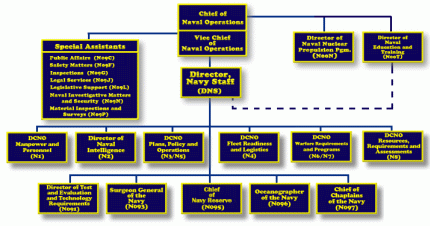12 January 2010
Revolutionary Rex

(Old Navy Library, where OpNav Staff Documents were held)
The bitter cold lingers here in the capital. It has been quite a stretch, commencing with the two-foot dump of snow a week before Christmas and continuing right through this morning.
The normal strategy of the jurisdictions whose domains intersect this corner of the Potomac River is to freeze in place and hope for the inevitable and rapid thaw.
The nice people on the radio claim there is only one more day of this, and then we will climb above freezing, and the piles of concrete-like ice left strewn on the streets and in the parking places will begin to melt.
I notice the debate on warming has lost much of its inertia, since the climate change we can observe in our human time-scale is that of frigidity, rather than heat, since the current cold snap is one that needs a century or more to match.
I am confident that the ground will be thawed enough for digging at Arlington in a few days, though John’s funeral (Semper Fi!) on Thursday will have its challenges.
The earthly remains of John and Rex are over at the Murphy Home just off Glebe Road. I happened to be there on personal business yesterday and inquired as to their whereabouts. The Murphy staff is quite solicitous, and I am on the brink of contracting for eternity with them.
Not that I am expecting any rapid motion in that direction, but given the events of the last few months, it would seem prudent to make arrangements a priori the inevitable, and leave less to the vagaries of fate, and the pocketbooks of the heirs to my estate.
Anyway, if not a rollicking session, it was at least professional and businesslike, since part of the business of life is the conduct and decorum of death.
The only thing eternal in this town is the Government, though perhaps it is more realistic to describe it as a glacier rather than a monolith as substantial as a Pyramid. I have every confidence that this government, in some epoch, will pass away and the great river will overflow its banks and sweep all before it down to the ocean abyss.
But not this year.
The Department of the Navy might be the epitome of the glacier analysis. There has been remarkable change over the last century, though for anyone who has tilted at its mighty concrete walls. The current organization of the Department has survived, in one fashion or another, since the establishment of the Office of the Chief of Naval Operations in 1915.
He warren of offices and bureaus that composed the system of dockyards and seaplane bases that spanned the globe were all managed out of the temporary offices at Main Navy, and later at the Pentagon. The office codes to describe the activities of such a global leviathan are naturally complex, and bewildering to the outsider.
Accordingly, I will not attempt to capture them all, nor describe the nuance of what appear to be minor changes to the untutored, or even blessedly indifferent, observer.
We will attempt to keep this light, and as painless as possible. Chief of Naval Operations Bud Zumwalt was a determined player in his navy, and he had sharp elbows. He inherited Admiral Harlfinger as his Director of Naval Intelligence in 1970, but clearly he wanted his own team with men he could trust. We will ignore the oxymoron; the actual operational influence of the Chief was long gone, and his actual function under U.S. Code title 10, as amended, was to simply “provide, equip and train” a Navy for others to use.
He wanted Rex to be his Director. He often credited him with devising the SEALORDS strategy that seemed to have turned the tide on the Indochina war, and Zumwalt got his team in place when Rex took over as the Director of the Naval Intelligence Division on 22 July 1971.
You will note the title. Rex was not Director of Naval Intelligence. He was just a Divison Director. The staff war was on.
The well-connected and well-liked submariner Frtiz Harlfinger had “cherrypicked” the cool functions of the disparate organizations that related to information, and consolidated their functions in a variety of staff codes under himself, incarnate as something called “Op-94.”
Cherry-picking is not my word for it; those are the words of one of the participants in the bitter staff war that commenced immediately. Another, not one of my little tribe but the one most closely aligned with it, described the war this way:
“Back in the day, shortly after the COMNAVSECGRU screw ups; USS Liberty, then almost immediately thereafter the USS Pueblo, Admiral Harlfinger was able to gain some control of some very loose cannons by placing Command-Control-Communications and Intelligence (C3I) major claimants in OP-94, that be OP-941 OP-942, OP-943 and OP-944. Was that two years of my life wasted? Man-o-mano did I ever get beaten to a pulp in some of those "consolidation" meetings. Oh the scars!”
Ted, who would later be the DNI in his own right, knows all the ins-and-outs of those bitter staff battles. The Intelligence and Cryptologic elements had their bastions of highly classified activities which were concealed behind cipher locks and vault doors; the term for it among those not privileged access was “The Green Door.”
There was reason for those doors. We have glanced, in passing, at an operation in progress at the time that involved the appropriation of a complete Soviet submarine, its nuclear weapons and code material. That operation, managed out of Langley, still required the constant care and support of naval intelligence worldwide to provide indications of Russian awareness of what was happening to them.
That is only one of a dozen or more projects of great interest to the Navy and to President Nixon, though in this place we will leave those activities to the imagination. You may rely on the fact that it was a truly crazy time.
The war for control raged in the corridors of the Pentagon and across the placid campuses of Langley, Arlington Hall Station and Fort George Gordon Meade. Admiral Harlfinger had the car, the driver and attended the meetings.
Ted told me that one day a note came up from the CNO’s office, saying, “Who the hell is the DNI?” There clearly was confusion in the community, and with the events happening on the ground in Asia, on the waters of the world ocean and the heavens and deeps below it, the community wanted to know who really spoke for Navy.
It was clear that Admiral Zumwalt wanted Rex to be his Man, in title and function, just as he had been in the rambling two-story nineteenth century French colonial villa in Saigon. It is not in the slightest bit ironic to picture Rex as the leader of his own Navy Viet Cong cadre, revolting against the established authority of the OpNav Staff.
Ted and a panel of revolutionaries began to scheme the palace coup, and the plans and recommendations were briefed to Rex and discussed in detail at the Admiral’s retreat up on the plateau of west Central Pennsylvania. Rex was courteous and listened intently. After a Saturday of listening, he described how things were really going to work.
Detailed study had revealed a provision in the OpNav Staff organization for an organization that could be established with a direct reporting line to the CNO, without requirement to report to intermediary staff.

(Imaginary organization of the personal staff of the Chief of Naval Operations)
That code would be called “Op-009,” with the double zeros referring to the fact that his code belonged to the Chief, and to him alone.
It obviously could not have happened without the welcome complicity of the Chief, but it was still a hard-won battle for an independent intelligence voice that reported truth to power directly, and without revision or politics.
There was, in those days, a closet up on the Fifth Floor of the Pentagon. As one of the residual perquisites of the DNI as Dean of the Washington Naval Attaché corps, liquor confiscated by the Treasury Department was apportioned to the Navy for use in official representational functions.
None of those normally happened in the hide-bound Pentagon (though some remarkable things have, in my personal experience) but the celebration on the successful revolt caused a bottle of Olde Something-or-Other was broken out, and the triumph was slightly tarnished by the antics of an intoxicated navy Captain visiting some vanquished staff codes to inform them of their defeat.
The closet is long gone, of course. That is one of those things about The Old Navy- which is always the one that disappeared right before you arrived at the duty station.
So, to sum up, in February 1973, the Office of Naval Intelligence (ONI) was formally reinstituted with Rex becoming the Fourty-Eighth Director of Naval Intelligence (DNI) and Commander of the Naval Intelligence Command (COMNAVINTCOM).
The challenges confronting him were daunting, the first of which being that fact that the war that defined his career was winding down, and the Congress was breathing hard to slash the defense budget. The world that he had known was being transformed, and it is a tribute to Rex that the polished way he handled it got him another star.
And with it, the curse of everyone’s budget in military intelligence.
Damn. I am out of time and have to dash to the Pentagon. We will have to talk about that tomorrow.
Copyright 2010 Vic Socotra
www.vicsocotra.com
Subscribe to the RSS feed!